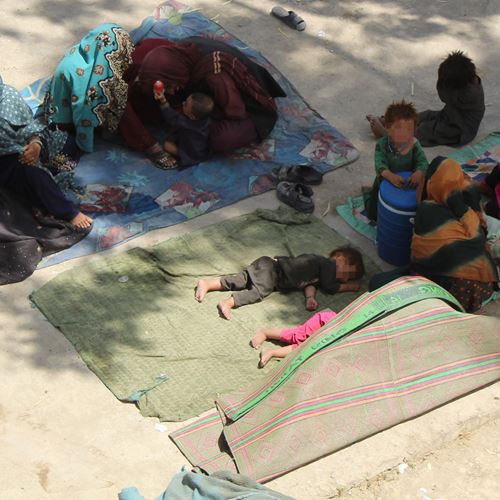With the Taliban seizing power in Afghanistan on 15 August 2021, a new reality is dawning on the Afghan population as well as the international community and aid organisations present in the country to assist millions of people caught in one of the world’s largest humanitarian crises. More than 18 million people – nearly half of the 40 million people living in Afghanistan – were estimated to be in urgent need of humanitarian aid before the recent developments – a number that since then has spiraled in just a few days to new, and still unknown, heights.
As the crisis is unfolding, the recent days’ developments have caused uncertainty, fear and panic among the civilian population in Afghanistan. DRC continues to be present on the ground through a robust and locally anchored set-up with 700 Afghan employees and is among the recognized and experienced aid agencies with more than 20 years in the country. DRC is committed to negotiate and ensure access to continue to deliver life-saving assistance and protection services.
"We see how thousands of Afghans are seeking safety within the country and some managing to cross borders into safety abroad. We also see how the recent developments and change of power add to an already dire humanitarian situation due to more than 40 years of conflict, an ongoing nationwide drought and rampant spread of COVID-19," says Charlotte Slente, Secretary General of DRC.
"In the current deteriorating situation and times of uncertainty, it is very important that we – and other organisations – stay and deliver the much-needed humanitarian assistance when the needs are increasing. It is also an important signal to send both to the international community but not least to the Afghan population – that we are here to stay and support," Charlotte Slente continues.
With the rapid escalation of the humanitarian crisis in Afghanistan, DRC right now works to ensure access as well as the safety and protection of civilians in general, and the most vulnerable in particular, as well as aid workers who must be granted access to people in need.
It is critical to keep borders open and functioning to alleviate the risk of dangerous migration routes and human trafficking. At the same time with the sky-rocketing prices of commodities, it is important to keep airports and land borders open for goods to arrive into the country. DRC continues to urge the Taliban and neighboring countries to ensure that borders remain open for those who seek protection outside Afghanistan, and to allow for regular movement of commercial goods - via land or air - to keep commodities available and services functioning.
